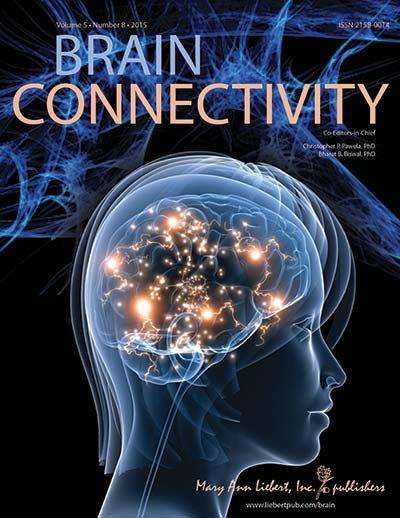Credit: Mary Ann Liebert, Inc., publishers
New research clearly shows that injury, disease, and related therapeutic interventions can impact critical crosstalk and connectivity between functional networks and brain regions. The effects of traumatic brain injury (TBI), stroke, and repetitive brain stimulation are among the topics examined in articles published in the Injury and Disease special issue of Brain Connectivity.
In "Investigation of Information Flow During a Novel Working Memory Task in Individuals with Traumatic Brain Injury," Ekaterina Dobryakova and coauthors from Kessler Foundation (West Orange, NJ), Rutgers New Jersey Medical School (Newark, NJ), and the Department of Veterans Affairs' War Related Illness & Injury Study Center (East Orange, NJ), used a novel tool called CapMan to assess brain connectivity and information flow associated with working memory across brain hemispheres. The results of their study showed hyper-connectivity and less coherent information flow in TBI patients compared to healthy individuals.
Ying-Chia Lin, et al. from University of Verona (Italy), Ecole Polytechnique Féderale de Lausanne, University of Geneva, University of Lausanne, and Siemens Schweiz AG (Switzerland) demonstrated that after a stroke, which causes oxygen deprivation and ischemic damage to brain tissue in one brain hemisphere, remodeling of neuronal axons and myelin takes place not only in the injured motor network, but through connectivity plasticity, also in the uninjured motor network in the other hemisphere. The researchers present their findings in the article "Quantitative Analysis of Myelin and Axonal Remodeling in the Uninjured Motor Network After Stroke."
The article "Effect of Repetitive Transcranial Magnetic Stimulation on fMRI Resting-State Connectivity in Multiple System Atrophy" describes a noninvasive stimulatory intervention that delivers repeated magnetic pulses to treat neurological and psychiatric conditions. Ying-hui Chou and colleagues from Duke University Medical Center (Durham, NC), and Peking Union Medical College Hospital (Beijing, China), studied the effects of this treatment method on resting-state brain functional networks and the relationship to changes in motor symptoms in patients with multiple system atrophy (MSA). Compared to MSA patients given a sham treatment, those treated with repetitive transcranial magnetic stimulation showed significant improvement in motor positive changes in several aspects of related functional brain connectivity.
More information: The issue is available free on the Brain Connectivity website until November 14, 2015.
Provided by Mary Ann Liebert, Inc





















